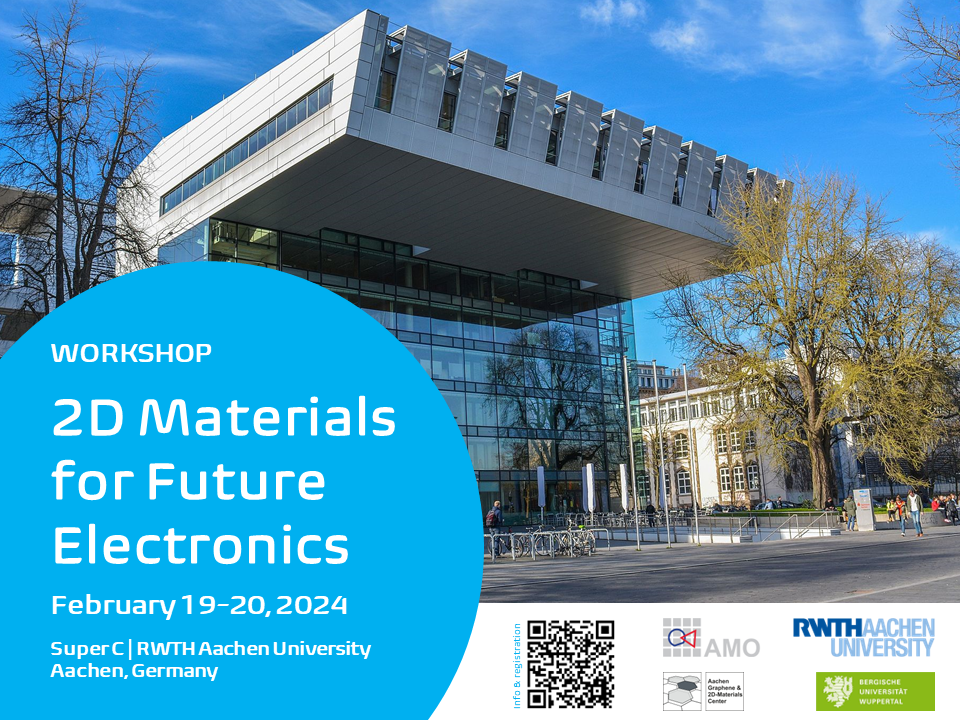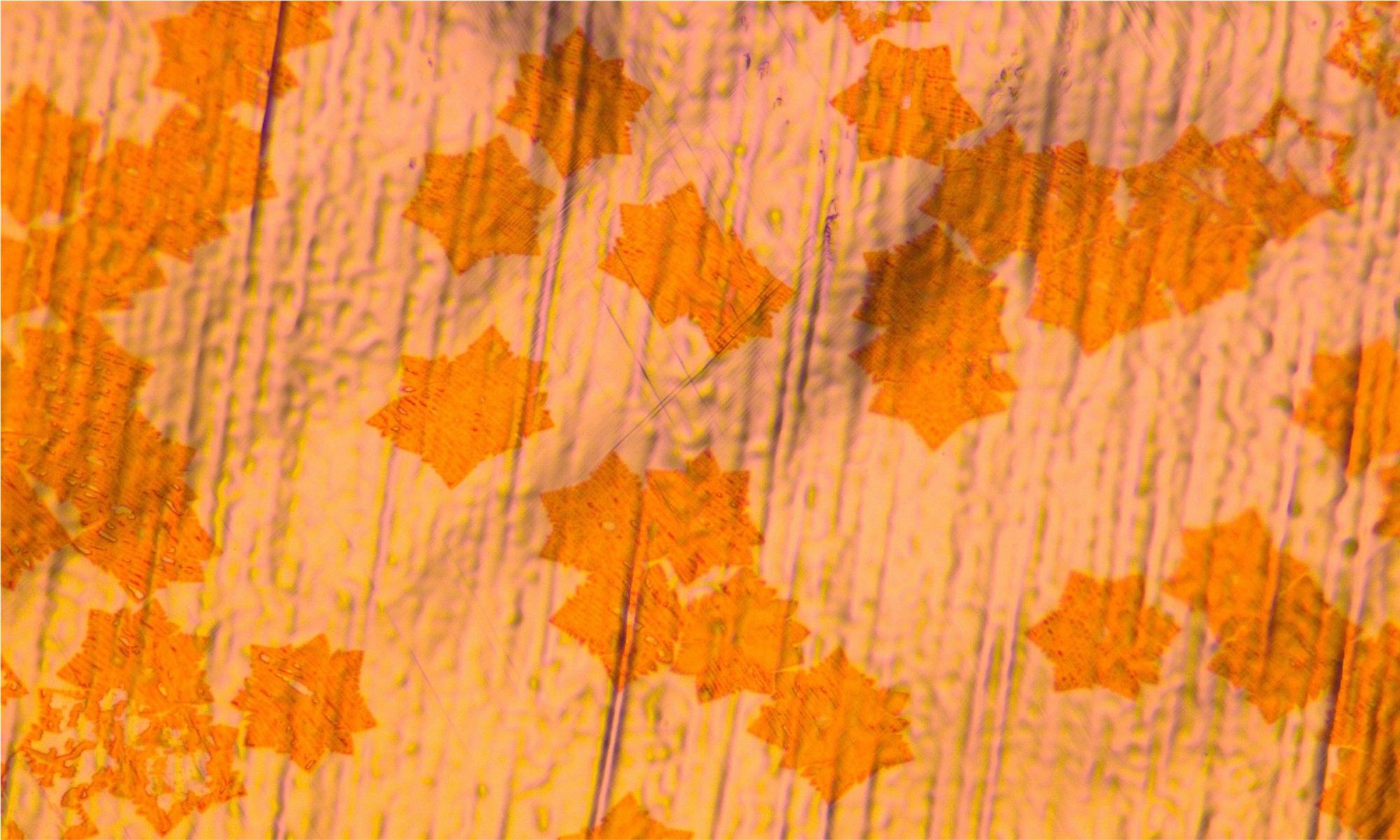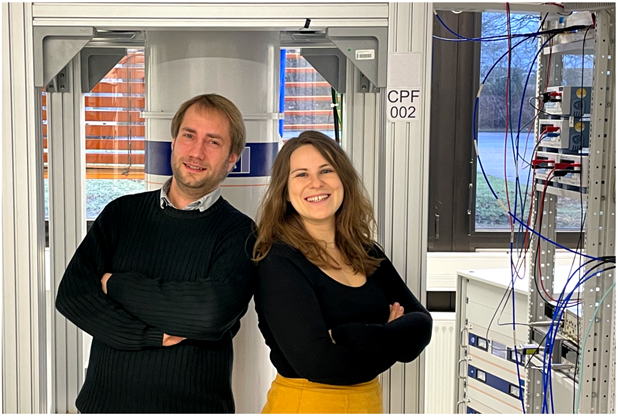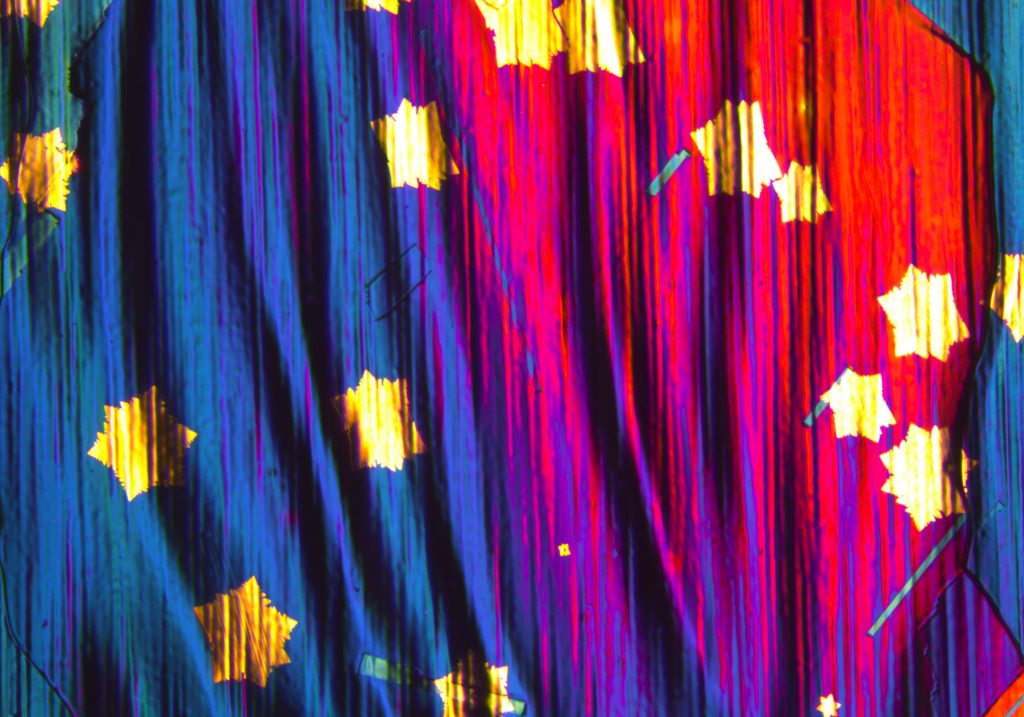AMO GmbH and the Aachen Graphene & 2D Materials Center are organizing a two-day workshop on “2D Materials for Future Electronics”, in cooperation with RWTH Aachen University and the University of Wuppertal.


Aachen Graphene & 2D Materials Center
From material science to new device applications
AMO GmbH and the Aachen Graphene & 2D Materials Center are organizing a two-day workshop on “2D Materials for Future Electronics”, in cooperation with RWTH Aachen University and the University of Wuppertal.

In a recent study published in Nature Communications, researchers from RWTH Aachen University and Forschungszentrum Jülich have reported the observation of coherent charge oscillations in bilayer graphene quantum dots. This marks a significant milestone on the way to spin and valley qubits in a two-dimensional material system.

Good news for the community working on two-dimensional materials in Europe: a team of researchers at RWTH Aachen University has successfully implemented the process for growing high-quality hexagonal Boron Nitride at atmospheric pressure and high temperature, increasing the resilience of the supply chain of this unique material.

Prof. Annika Kurzmann has been appointed ML4Q Professor for Experimental Solid-State Physics at the University of Cologne.
Continue reading “Congratulations to Prof. Annika Kurzmann”Alwin Daus has been appointed Junior Professor at the Department of Microsystems Engineering (IMTEK) at University of Freiburg.
Continue reading “Congratulations to Prof. Alwin Daus”Nowadays it is possible to grow high-quality graphene on large scale using chemical vapor deposition (CVD). What remains a major bottleneck for the industrialization of the material is the transfer of graphene from the growth substrate to a target one. A team of researchers from the University of Cambridge and RWTH Aachen University has now developed a methodology for optimizing simultaneously the growth and the transfer process, showing that it is possible to dry-transfer graphene with high-yield, if the crystallographic orientation of the growth surface is chosen appropriately.

October 11, 2022, Prof. Steven Koester, from the University of Minnesota, has presented some of the latest results of his group on graphene-based bio-sensors during the 31th Aachen Graphene Center Seminar.
Continue reading “Enhancing Biosensor Response with Graphene “Lighting-Rods” – A talk by Prof. Steven Koester”One of the challenges encountered by research on novel electronic devices is to compare devices based on different materials in a consistent way. RWTH Professor Max Lemme and colleagues from USA, China, and Belgium have now proposed a set of clear guidelines for benchmarking key parameters and performance metrics of emergent field-effect transistors. The guidelines have been published as a Perspective Article in Nature Electronics.
Continue reading “How to report and benchmark emerging field-effect transistors”Mr. Saketh Ravuri and Ms. Priyanka Mondal have joined the “2D Materials and Quantum Devices Group” lead by Prof. Christoph Stampfer at RWTH Aachen University for a seven-month research staying supported by DAAD KOSPIE scholarships.
Continue reading “Welcome to Mr. Saketh Ravuri and Ms. Priyanka Mondal”The Aachen Graphene & 2D Materials Center warmly congratulates Dr. Alwin Daus, who has won a grant of the Emmy Noether Programme for founding his own junior research group working on 2D materials for flexible electronics.
Continue reading “An Emmy Noether Group in the Center”